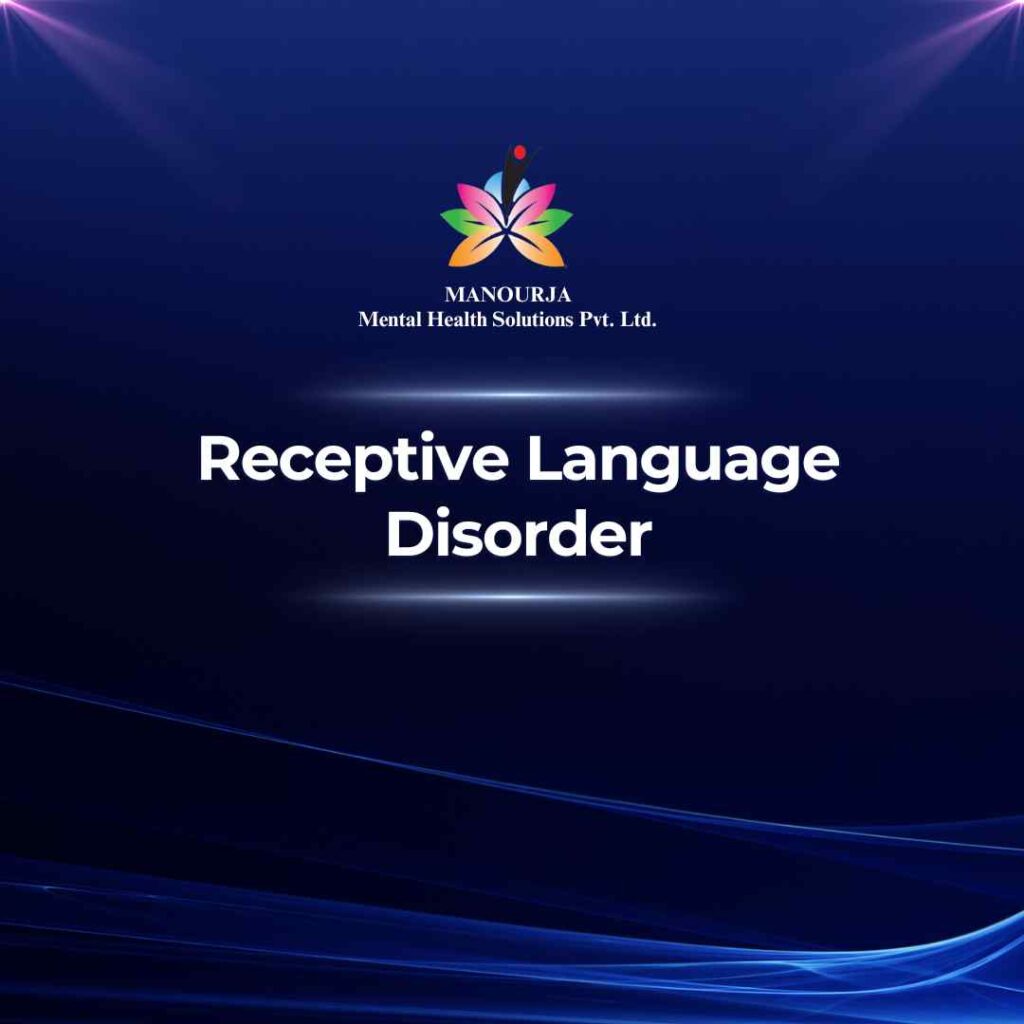Receptive Language Disorder

Receptive language disorder is a communication disorder characterized by difficulties in understanding and processing language. Individuals with this disorder struggle to comprehend spoken words and sentences, interpret what is being said, and sometimes follow directions or respond appropriately to questions. This condition impacts an individual’s ability to effectively receive and interpret communication from others.
Symptoms of Receptive Language Disorder
Key characteristics of receptive language disorder include:
- Difficulty Understanding Speech: Challenges in grasping the meaning of words and phrases used by others, which can lead to misunderstandings and communication breakdowns.
- Problems Following Directions: Difficulty following verbal instructions, especially if they are complex or given in a sequence.
- Issues with Language Processing: Slower processing of linguistic information, which may result in delayed responses in conversations.
- Poor Listening Skills: Appears not to listen or has trouble focusing during spoken communication.
- Difficulty with Abstract Language: Challenges in understanding metaphors, idioms, or jokes, which can make social interactions confusing.
Forms of Receptive Language Disorder
Receptive language disorder can vary widely in severity and can appear primarily in two forms:
- Developmental Receptive Language Disorder: Manifests in children as part of their developmental process and is identified when language comprehension skills are below the expected level for their age, with no apparent cause such as hearing loss or cognitive deficits.
- Acquired Receptive Language Disorder: Occurs due to injury to the brain, such as from trauma, stroke, or other neurological conditions, and affects previously acquired language skills.
Treatment of Receptive Language Disorder
Treatment strategies for receptive language disorder are tailored to each individual’s specific needs and may include the following approaches:
Speech and Language Therapy:
- Speech-language pathologists (SLPs) play a crucial role in diagnosing and treating receptive language disorder. Therapy may focus on improving vocabulary comprehension, the ability to follow directions, and enhancing overall linguistic processing skills.
- Techniques often include the use of visual aids, repetitive exercises, and language games to reinforce understanding.
Educational Support:
- Children with receptive language disorder often benefit from accommodations in the educational setting, such as preferential seating closer to the teacher to aid listening, and explicit instructions broken into smaller, manageable steps.
- Individualized Education Programs (IEPs) may be developed to tailor educational approaches to the child’s specific needs.
Environmental Adjustments:
- Creating a communication-friendly environment at home and school can help reduce barriers to understanding. This might involve minimizing background noise and providing a quiet space for homework and studying.
- Clear, concise communication using simple sentences and visual cues can aid comprehension.
Parental and Caregiver Involvement:
- Training for parents and caregivers on how to communicate effectively with individuals with receptive language disorder is crucial. They can learn strategies to simplify language, confirm understanding, and use non-verbal cues to support communication.
Use of Technology:
- Various technological tools, such as apps and software designed to enhance language development, can provide additional practice and reinforcement outside of therapy sessions.
Social Skills Training:
- Because difficulties in language comprehension can affect social interactions, participating in social skills training can be beneficial. These groups help practice and improve pragmatic language skills in a structured setting.
Conclusion
Receptive language disorder poses unique challenges to individuals, affecting their ability to understand and interact with the world around them effectively. However, with targeted interventions like speech and language therapy, educational support, and strategic communication techniques, individuals with this disorder can improve their comprehension skills and overall communication abilities. Early diagnosis and intervention are key to maximizing outcomes and helping individuals achieve their full communication potential.
At MANOURJA, we believe in the transformative power of counseling. Our experienced therapists offer a safe and supportive space where you can explore your thoughts, emotions, and challenges. Through personalized counselling sessions, we’ll work together to develop coping strategies, build resilience, and achieve lasting positive change. Discover the path to a healthier, happier you with MANOURJA counselling services.
MANOURJA Rehabilitation Services
At MANOURJA, we’re dedicated to helping you in rebuild your life, after difficult times. Our rehabilitation services focus on understanding what you need to move forward, whether you’re recovering from addiction, trauma, or any psychological – social challenges. We create personalized plans, that are all about helping you, regain your strength and find hope again. With a caring team by your side, you’ll have the support to make real progress and take steps toward a brighter, healthier future.
